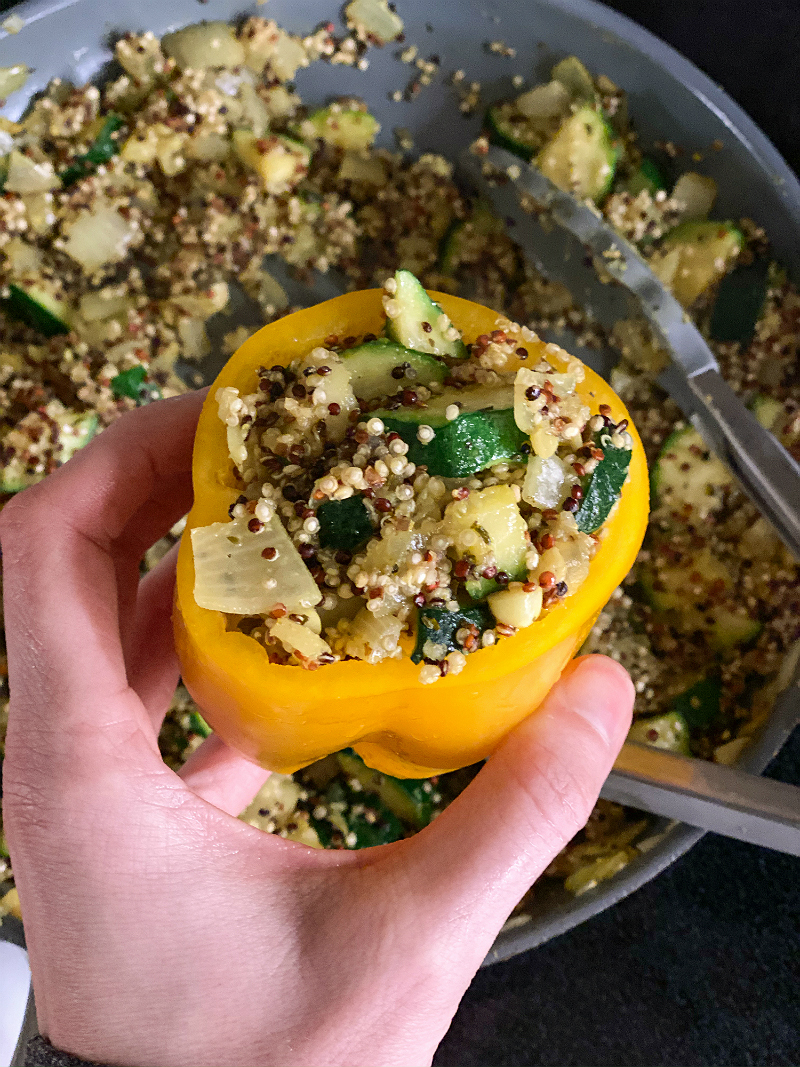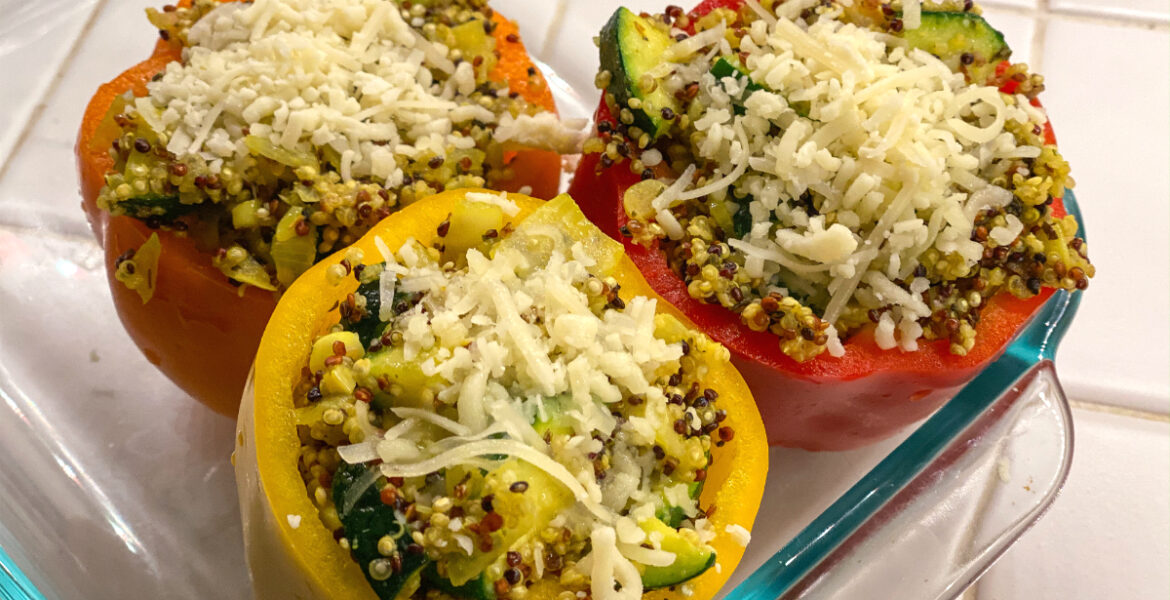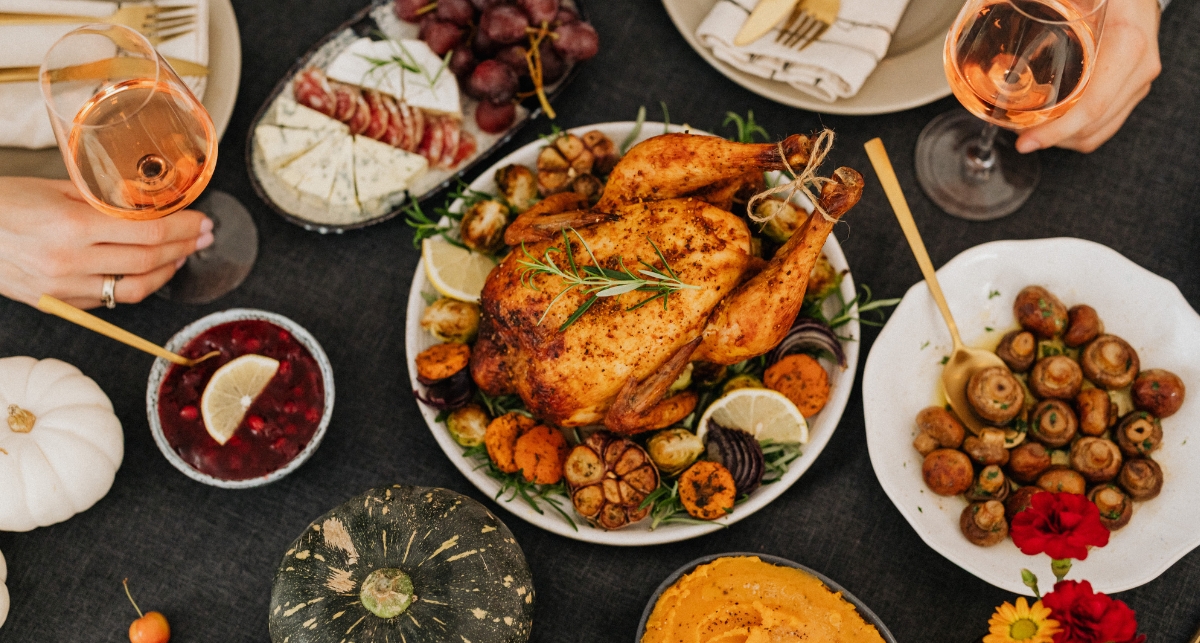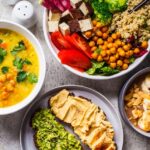Vegetarian quinoa stuffed bell peppers have become one of my favorite easy-to-make, good-for-you recipes. High in essential nutrients, vitamins, and antioxidants, this delicious recipe helps to boost your immune system and make your skin glow. Talk about a win-win!
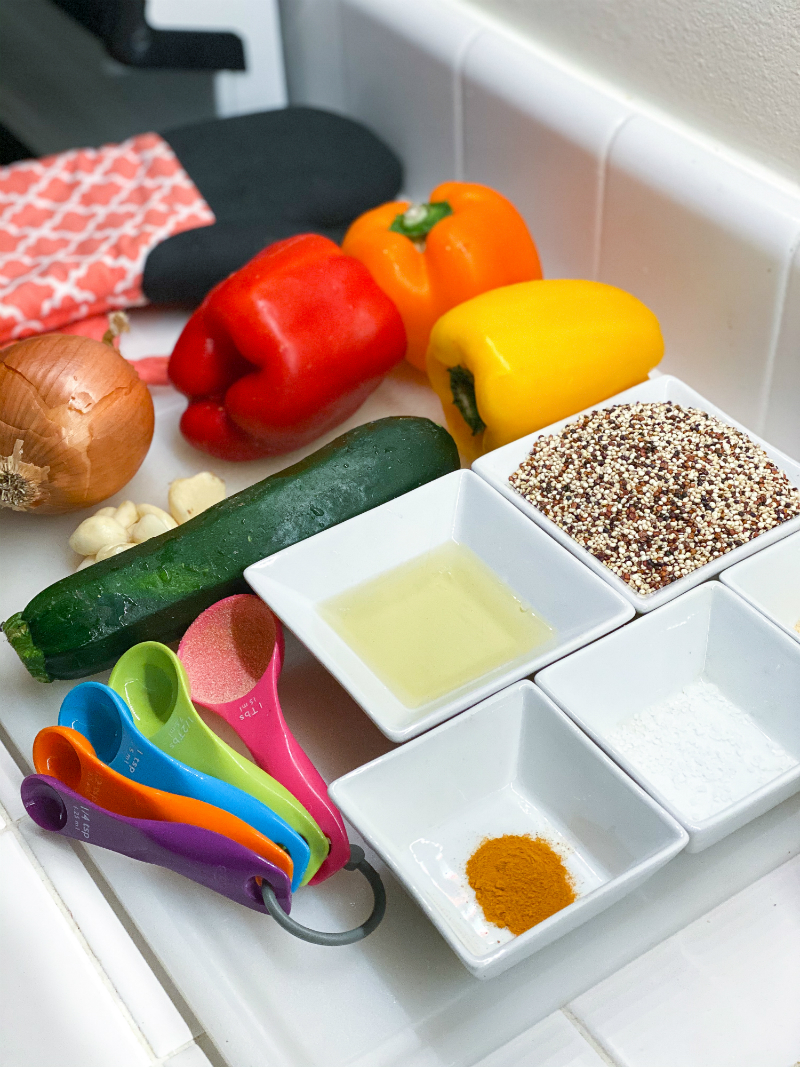
Vegetarian Quinoa Stuffed Bell Peppers Recipe
INGREDIENTS:
- 3 Tricolor Organic Bell Peppers
- 1 Sweet Onion (chopped)
- 8-10 Fresh Garlic Cloves (minced)
- 1 Zucchini (chopped)
- 1 cup Tricolor Quinoa + 2 cups water
- 3 tbsp Avocado Oil
- 2 tsp Italian Seasoning
- ½ tsp Turmeric Powder
- 1 tbsp Garlic Powder
- Dash of Sea Salt
- Optional: Sprinkling of Grated Parmesan Cheese
NOTE: To make this recipe vegan, just skip the cheese on top.
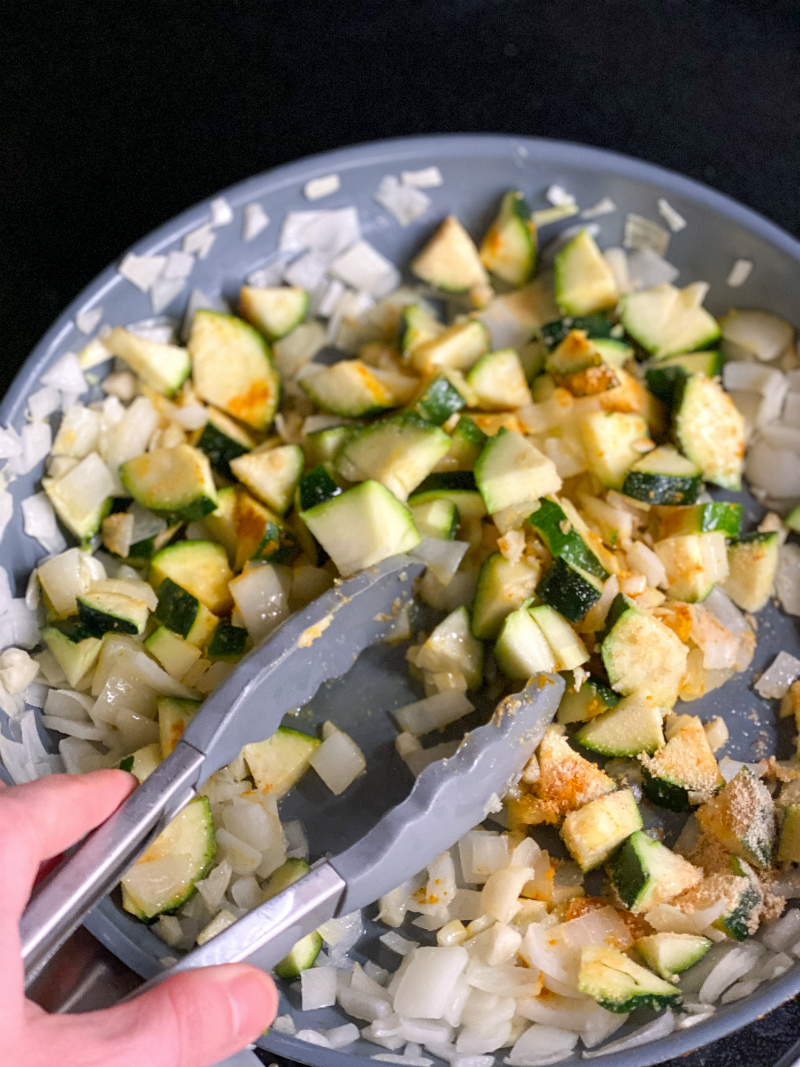
DIRECTIONS:
- Pre-heat oven to 350°F.
- In a pan, saute onion, garlic, and zucchini with avocado oil and seasonings on medium-high heat, until softened and golden-brown in color.
- Cook quinoa in the water on the stovetop for about 15-minutes. Bring to a boil and reduce to simmer.
- Mix all stuffing ingredients together in the large pan.
- Cut the top of the bell peppers off and clean out the insides.
- Stuff the bell peppers with the vegetable quinoa mix.
- As an optional topping, add a sprinkling of grated parmesan cheese to the top of each bell pepper.
- Bake for 20-minutes in the oven.
- Serve hot.
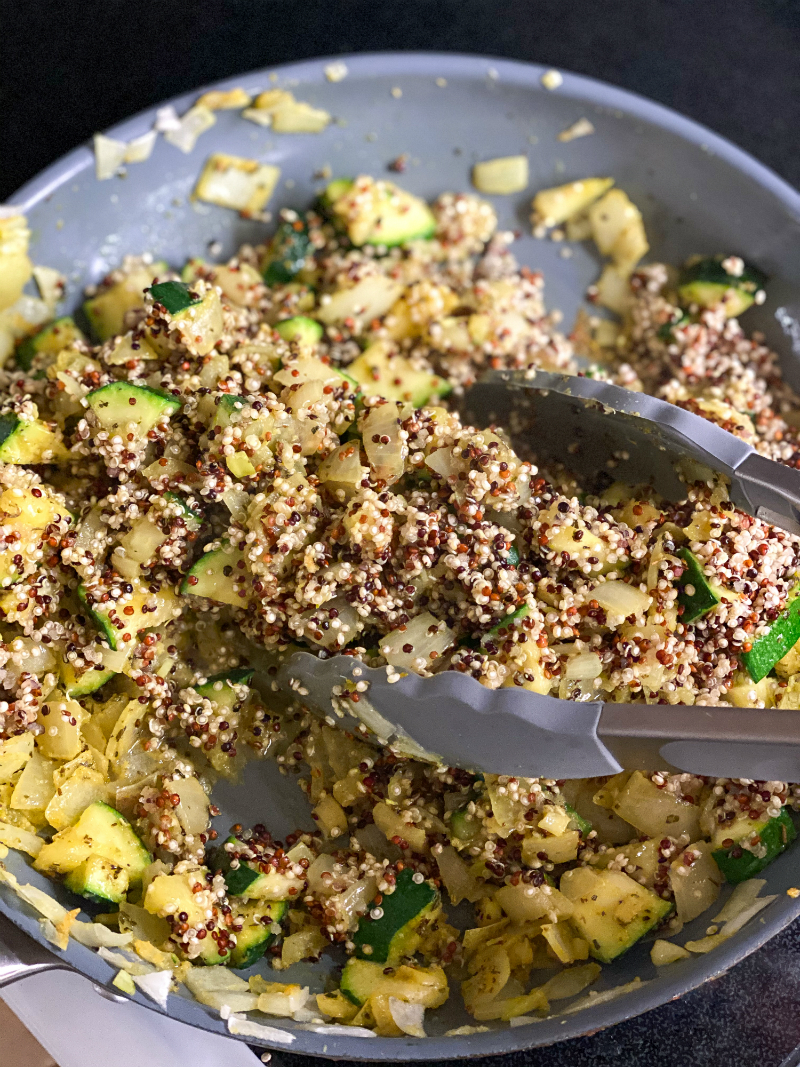
8 Wellness Benefits of Vegetarian Quinoa Stuffed Bell Peppers
- Bell Peppers are low in calories and are loaded with good nutrition. All varieties are excellent sources of vitamins A and C, potassium, folic acid, and fiber. (source: WebMD)
- Garlic is full of vitamins and minerals, including vitamin B6, manganese, selenium, vitamin c, iron, potassium, and copper. This powerhouse combination is especially good for cognitive function: Vitamin B6 and magnesium are both linked to boosting mood and improving brain health. (source: Well + Good)
- Quinoa is gluten-free, high in protein and one of the few plant-based foods that contain sufficient amounts of all nine essential amino acids. It is also high in fiber, magnesium, B vitamins, iron, potassium, calcium, phosphorus, vitamin E and various beneficial antioxidants. (source: Healthline)
- Onions are chock-full of antioxidants. They supply dozens of different types, including quercetin, a potent anti-inflammatory compound. The outer layers of an onion pack the greatest antioxidant punch. (They also) contain inulin, which helps prevent constipation, improve blood sugar regulation, boost nutrient absorption, and support healthy bone density. (source: Health)
- Zucchini has a good amount of potassium: 295 milligrams per cup, or 8% of your recommended daily value. According to the American Heart Association, potassium can help control blood pressure because it lessens the harmful effects of salt on your body. Zucchini is also high in the antioxidant vitamin C, which may help the lining of your blood cells function better, lowering blood pressure and protecting against clogged arteries. (source: Health)
- Avocado oil is low in polyunsaturated fat and high in monounsaturated fat. Oils that are higher in monounsaturated fats are better for you. Dena Champion, a registered dietitian with the Ohio State University Wexner Medical Center, says that “monounsaturated fats are considered healthy fats, as opposed to saturated fats, which are considered unhealthy. Monounsaturated fats are associated with cardiovascular benefits and anti-inflammatory benefits.” (source: U.S. News & World Report)
- Sea salt is mostly composed of sodium chloride, a compound that helps regulate fluid balance and blood pressure in the body. Since it’s minimally processed, it contains some minerals, including potassium, iron, and calcium. (source: Healthline)
- Turmeric is used in Ayurvedic medicine to treat inflammation. (source: WebMD) As chronic inflammation contributes to many chronic diseases, curcumin (a substance in turmeric) may help treat conditions like inflammatory bowel disease, pancreatitis, and arthritis. (source: Everyday Health)
